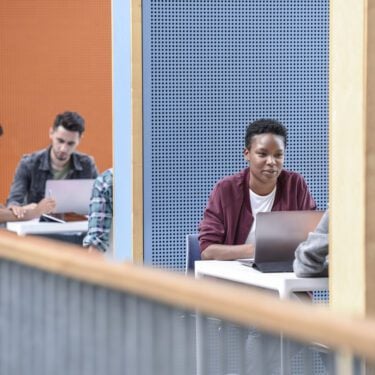-
Dr Stefan SpeckesserUniversity of Brighton
-
Dr Lei XuBournemouth University
-
Dr H'ctor EspinozaNational Institute of Economic and Social Research
-
James ThanniNational Institute of Economic and Social Research (NIESR)
Project overview
This project brings new evidence on the importance of digital skills for individual earnings and employment in jobs with mid-level skills, which are very often jobs people begin via apprenticeships.
Related job roles cover a wide spectrum of technical, administrative, manufacturing, trade, service and care occupations, most requiring successful Level 3-5 education, but usually not completion of bachelor or master’s degree programmes.
Why this research is important
In April 2017, the government introduced the Apprenticeship Levy to encourage employers to create and fund new apprenticeships, now logged through the Institute for Apprenticeships and Technical Education. Since the Levy there has been both a reduction in Intermediate Apprenticeships (equivalent to 5 ‘good’ GCSEs) and an increasing number of Advanced (Level 3 qualifications) and Higher (tertiary) Apprenticeships offered. Prior to this project, there was very little systematic knowledge about these new apprenticeships.
Headline findings and recommendations
Digital skills show significant earnings effects in occupations requiring mid-level skills, but only relatively advanced digital skills.
For the further development of apprenticeships standards in the UK, the findings suggest that vocational education should go beyond Functional Skills to provide advanced skills. Advanced skills are necessary to prepare apprentices for higher paid and more productive jobs in their chosen occupation.
Download the full project report and executive summary to learn more.
More key findings
- Digital skills are now very common in occupations requiring mid-level skills. Across all of them, “Microsoft and office” skills, “computer” and “data” skills are particularly highly sought.
- When we distinguish between “basic” and “advanced” digital skills, we see a much wider adoption of basic digital skills across the main occupational groups. “Advanced” digital skills mainly represents the use of general or professional software or computing languages.
- Following the basic assumptions of the (microeconomic) human capital model, the researchers estimate earnings differentials associated with digital skills using regression models, which control for the heterogeneity of job roles by including fixed effects for the individual “Apprenticeship standard”, i.e. the 600+ occupations regulated by the Institute for Apprenticeships. These models find positive associations between digital skills and wages in occupations requiring mid-range qualifications, but not in the highly skilled jobs. The absence of significant earnings differentials for managerial, professional and associate professional occupations (in terms of the Standard Occupational Classifications, SOC) show that the incorporation of digital skills is endogenous in such roles.
- A disaggregated analysis of specific skills shows that positive earnings differentials are driven by “advanced” skills, while mentioning explicitly some of the lower-level digital skills like “Microsoft Office”, “computers”, “email” and “social media” show in several regression specifications negative associations with observed wages.






































